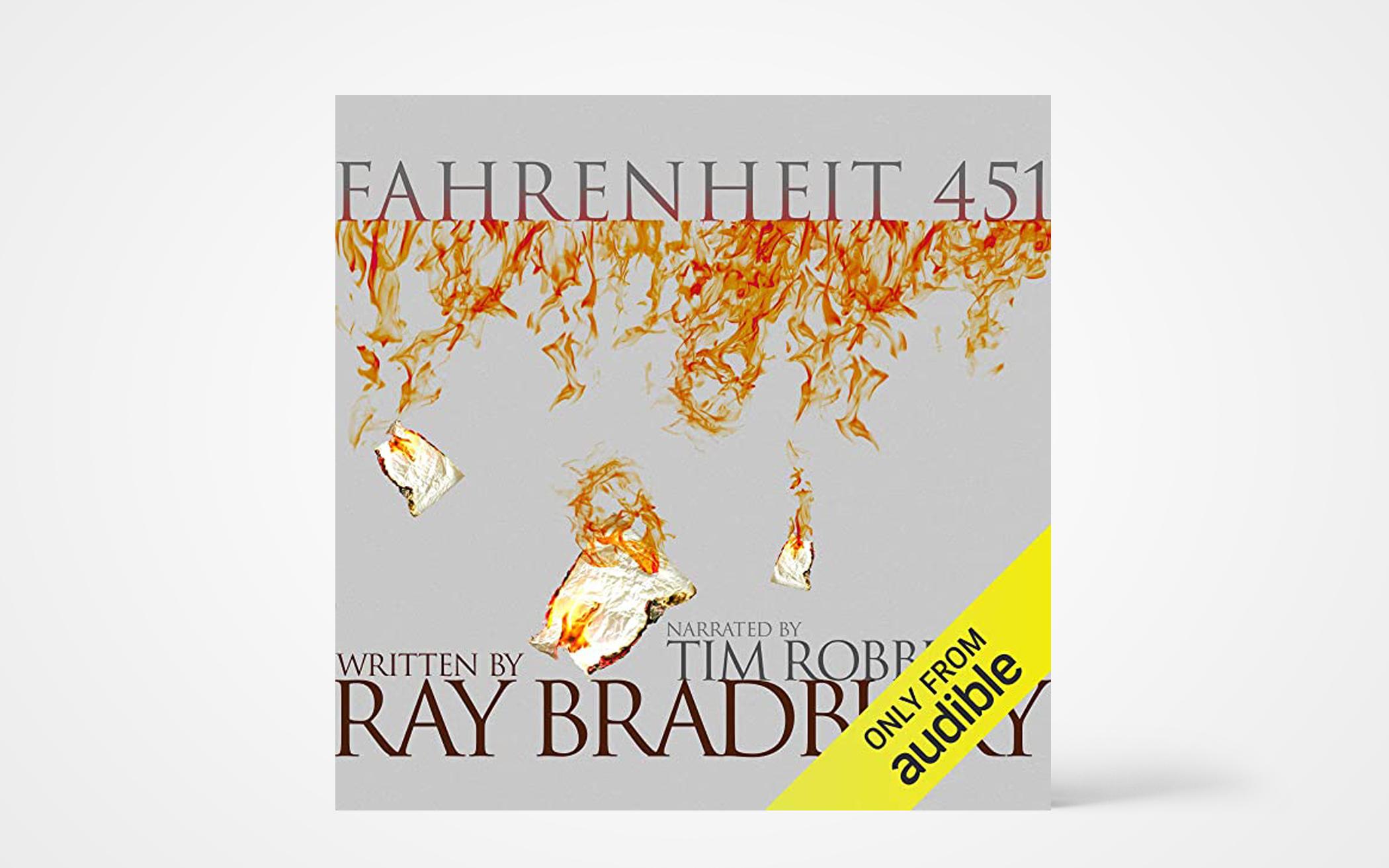When I was a teen, I definitely judged a book by its cover. The copy we had at home of Ray Bradbury’s Fahrenheit 451 showed a fireman in front of a raging fire. “He’s actually burning books,” my brother explained, adding that 451 degrees Fahrenheit is the temperature at which books will spontaneously combust. While I was intrigued, the garish flames on the cover turned me off, and I never read Bradbury’s novel.
When The Banner’s Mixed Media editor asked if I wanted to review Fahrenheit 451 as an audiobook, I accepted immediately. I could fill another gap in my knowledge of the classics—without having to judge the book by any cover.
I did find it ironic, at first, to be listening to a book about burning books, as if I was somehow contributing to their spontaneous combustion. But I soon realized that Bradbury, writing at the height of the Cold War, was not chiefly concerned with the destruction of books.
“It was a pleasure to burn.” That’s the novel’s great first line and our introduction to Guy Montag, a fireman who loves to burn books. Montag lives in an unspecified American town, in an unspecified future where a totalitarian government controls the population’s minds by burning all books. In the place of books, the state offers mindless programs distributed through earbud-style “seashells” and wall-to-wall “parlor” TV screens. Montag soon questions his participation in this system after conversations with Clarisse McLellan, a free-spirited neighbor who questions his way of life. In turn, he tries to shake his wife Mildred out of her addiction to the state media, but with no success. Montag’s change in manner arouses the suspicion of his boss, Captain Beatty, a fire chief armed with slippery arguments and his Mechanical Hound, an evil robot dog. Montag eventually joins up with Professor Faber, a retired English professor, in a plot to change the system.
Faber explains to Montag that it’s not the physical, paper-bound nature of books that matters—it’s what in them. A good book, or any form of media for that matter, has “quality”—it examines deeply and closely the “pores” of human life. An open society also offers the time to reflect on such inquiry and also the freedom to make things better. As Faber’s foil and the book’s villain, Captain Beatty claims that books only provide contradictions and unpleasantries. He claims that society gave up on them of its own accord, not because of state censorship.
The experience of listening to Fahrenheit 451 during a national pandemic was at once powerful and unsettling. First of all, actor and director Tim Robbins (Shawshank Redemption, Dead Man Walking) is a fantastic narrator, capturing the feverish force of Bradbury’s descriptive and, at times, over-the-top prose. Robbins also uses different voices for each major character, emphasizing the satirical aspects of the novel. As I listened to the plot, however, I began to identify with Montag’s anxiety—for I was feeling increasing anxiety over the coronavirus. I also found myself wandering off into my thoughts, as a line by Bradbury made me think of the “Thought Police” in George Orwell’s 1984, the social engineering in Aldous Huxley’s Brave New World, or the state-sponsored reality show violence in The Hunger Games by Suzanne Collins. In short, one dystopian book led to thoughts of another and another, as I fell into a dystopian rabbit hole of sorts.
So why read or listen to Fahrenheit 451 at this time? Well, sheltering at home has certainly taught us the value and power of good films, TV shows, and books. A book like Fahrenheit 451 challenges us to think about what we will do with our time when we can circulate in complete freedom. Will we still take that time to read well, think deeply, and consider what we might change long term in our lives and in society? (Audible)
About the Author
Otto Selles teaches French at Calvin College, Grand Rapids, Mich., and attends Neland Avenue Christian Reformed Church in Grand Rapids.

